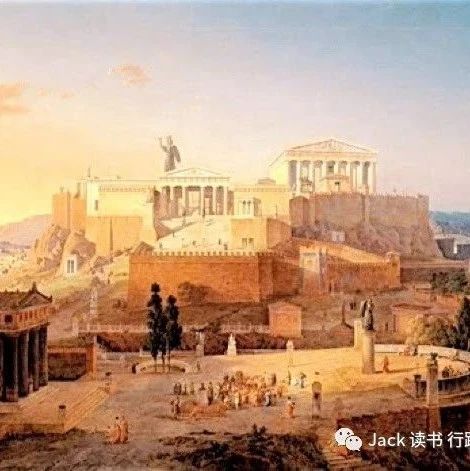Read History with Jack 37 - The Most Hazardous Moment
“There is a wheel on the affairs of men revolve and its mechanism is such that it prevents any man from being always fortunate.”
- Croesus the Lydian
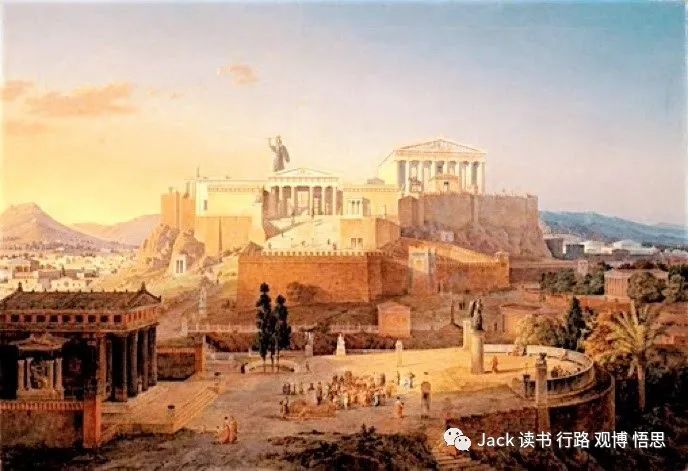
For both an individual or a state, it is inevitable that they would experience falls in their respective courses of development. However, we usually only talk about the stories of such ebbs and flows of human life and history themselves, we rarely deeply analyze when a person or a country or an empire is facing the most potential hazards of decline. Finding an answer to the question above will be crucial in order to correctly warn ourselves and our countries about the lurking dangers. From my point of view, an individual will be most dangerous of facing declination when his or her power or wealth reaches its apex, and when he or she thinks his or her life is most enjoyable and satisfying. The same principle goes with a state. A state in its most prosperous and successful era will usually face the gradual degeneration of its founding values and culture, ultimately taking the road towards demise.
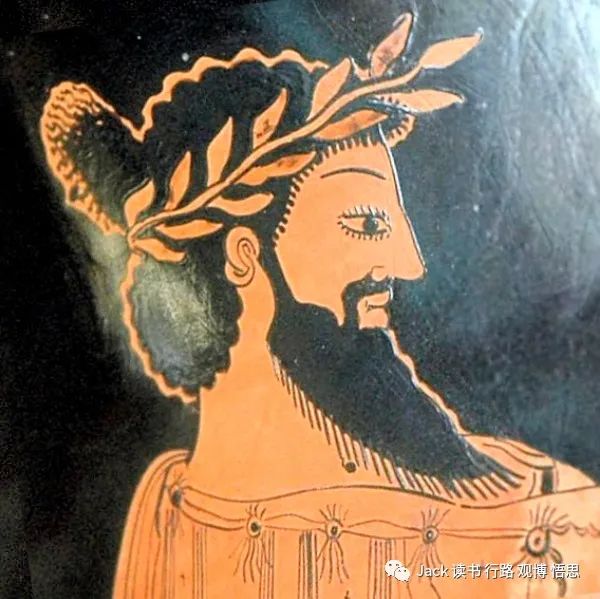
(Portrait of the Lydian king Croesus)
An individual will most possibly fall into darkness when he or she is experiencing the most highlight stages of life, for example holding over massive amounts of wealth and power. This trend exists mainly because when an individual feels that his power or fortune is unbounded, he or she will stop being prudent, careful, and diligent, qualities that should have helped him to achieve his or her current status in the social pyramid. However, the loss of such qualities would make that person not be able to sense the dangers that lie around him and would not think about the appropriateness of his or her actions and words. Further, the flamboyancy and superficiality that are caused by the exponential increase of wealth and dominance would make that person blind, unable to discern where the truth lies, unable to distinguish between what is good and what is bad. For instance, in Herodotus’ Histories, Croesus, the ruler of the Lydian Empire, an empire that dominated the Eastern Mediterranean during the 600s and 500s B.C.E, eventually plunged into his own tragedy as he was unable to gauge his situation well due to the excessive amounts of fortune and authority he had. In a conversation with the Greek philosopher and lawgiver Solon, Croesus asked who was the happiest man that ever lived. Croesus was expecting Solon to say himself. But Solon replied that no one can be called happy until he or she dies. Croesus dismissed Solon’s words, believing that his richness and supremacy over the Mediterranean region would provide him with endless happiness. By this point, the Persian Empire, under the leadership of Cyrus the Great, was quickly expanding its territory, and the Lydian Empire was pitted against the most threatening foe in its history. Croesus asked the Oracle of Delphi what to do, and the Oracle said that if Croesus declared war against the Persians first, then an empire would fall. Croesus was blinded by his power and could not see the true meaning behind the words. He thought that the empire he would destroy would be the Persian Empire, he had no idea that it was actually his own Lydian Empire. Consequently, Croesus proactively ordered his soldiers to declare war against the Persians and was eventually defeated. Croesus himself was captured by Cyrus’ army, and only before his ordered death did he realize the truths that lie in Solon’s words – no one can be called “happy” when he is still alive. From this historic example, we can see how mankind succumbs to the will of the deities, and how luxuriousness drives a man to be overly complacent, casting himself to his deepest low.
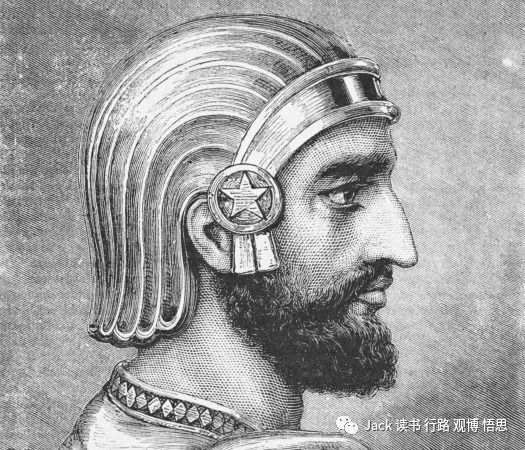
(Cyrus the Great)
The same principle applies to states and empires. When an empire is founded, its ruler and ruled usually live an austere, simple, and prudent lifestyle. They never care too much about luxuries, they look up to diligence and self-restraint. These are why an empire can rise. However, after a political entity such as an empire reaches the greatest height, it will usually start to degenerate and break down, just like an individual. This phenomenon is primarily because as an empire expands into new lands, its way of living can be seriously affected by that of the conquered. The empire can be enslaved by the luxurious lifestyle that the conquered leads, which will gradually begin to encroach on the traditional austere lifestyle, making the ruler and his or her subjects insolent, haughty, and egotistic. That is exactly when an empire is about to start to perish. For example, Cyrus the Great conquered the Lydians, yet the Persians eventually fell victim to the flamboyant and luxurious lifestyle the Lydians had; The Athenians defeated the Persians, yet they fell victim to the extravagant lifestyle the Persians led; The Spartans were victorious against the Athenians, yet they were enslaved by the profligate lifestyle of the Athenians. This continuous sequence illustrates for a ruler of an empire, a moderate life leads to freedom, while a lavish life leads to enslavement.
To wrap up, be it an individual or an empire, their respective fall is usually associated with the licentious and extravagant way of life that is usually associated with when a person or empire is experiencing its apex. The takeaway is that the day when power and wealth are at their greatest points will probably be the day when things begin to take a bad turn.
PICTURES CITED
https://en.wikipedia.org/wiki/Croesus#/media/File:Croesus_portrait.jpg
https://historyonthisday.com/events/middle-east/cyrus-the-great-captures-babylon/
https://sites.google.com/site/ancientgreecegoldenage/
“人间万象都是在车轮上循环运转的,这种运转决不允许同一个人一辈子都交好运的”
- 吕底亚的克罗伊索斯
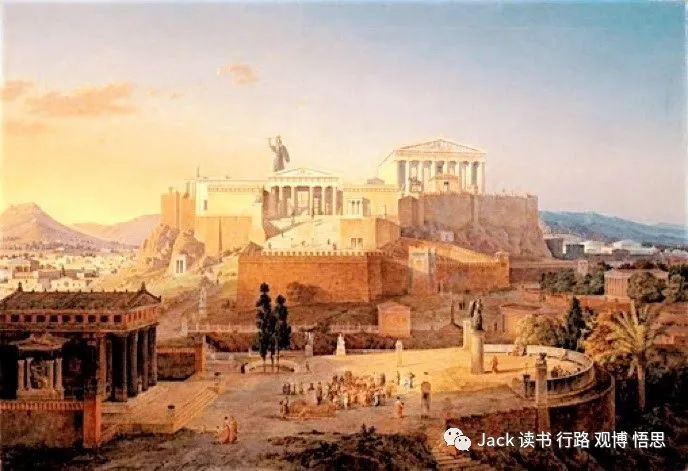
(雅典黄金时代图)
对于一个人或一个国家来说,在其发展历程中经历衰落是不可避免的。然而,我们通常只谈论人类生活和历史本身的这种起伏的故事,我们很少从深层次上分析一个人或一个国家(或帝国)何时面临最潜在的衰退危险。找到上述问题的答案将是至关重要的,其能够警告我们自己和我们的国家,哪些潜伏的危险可能是致命的。从我的观点来看,对于一个个人,当他或她的权力及财富达到顶点,或他的生活最顺畅得意的时候,往往是衰落的起点。同样的原则也适用于一个国家。一个国家在其最繁荣、最成功的时期,潜藏的往往却是文明精神的日益崩坏与扭曲,最终可能走向衰亡。

(吕底亚君主克罗伊索斯)
一个人在经历生命中最辉煌的阶段时,例如当他掌握大量的权利或者财富,最有可能陷入黑暗。这种趋势存在的主要原因是,当一个人觉得他的权力或财富是无限制的,他大概率会抛弃谨慎、小心和勤奋等一些帮助他在社会中成功的品质。然而,这些品质的丢失使他无法察觉周围的危险,也使他不会意识到自己语言和行为的失当。此外,财富和权力的成倍增长所造成的浮华和肤浅会使个人变得盲目,无法辨别真相所在,无法区分什么是好的和坏的。例如,在希罗多德的《历史》中,吕底亚帝国(公元前七世纪到六世纪统治地中海东部的帝国)的统治者克罗伊索斯最终陷入了自己的悲剧。他拥有的过多的财富和权力导致他盲目地自信,使其无法看清自己的处境。在与希腊哲学家和立法家梭伦的谈话中,克罗伊索斯问谁是有史以来最幸福的人,他觉得梭伦会说自己。但梭伦回答说,没有人在活着的时候可以被称为幸福的 。克罗伊索斯对梭伦的话不屑一顾,认为他的财富和权力会给他带来无尽的幸福。而此时,波斯帝国在居鲁士大帝的领导下正在迅速崛起,吕底亚帝国面临着空前的威胁。克罗伊索斯问德尔菲神谕该怎么做,神谕说如果克罗伊索斯向波斯人宣战,那么他将摧毁一个帝国。克罗伊索斯被他拥有的过度权势所蒙蔽,看不到这句话背后的真正含义。他以为他要摧毁的帝国是波斯帝国,他不知道那其实是他自己的吕底亚帝国。因此,克罗伊索斯主动命令他的士兵向波斯人宣战,最终被打败了。克罗伊索斯本人被居鲁士的军队俘虏,在他要被烧死之前,他才意识到梭伦话语中的真理 – 没有一个活着的人可以被称作是幸福的。从这个历史性的例子中,我们可以看到,人不可能拥有神力,一个人的成功是如何使他妄自尊大、得意忘形,最终被命运丢进无底的深渊的。

(居鲁士大帝)
这个原则同样适用于国家或帝国。当一个帝国建立后,它的统治者通常过着朴素、简单、节制、谨慎的生活。他们不陷入奢靡之风,崇尚勤奋与坚忍不拔,这就是为什么一个帝国能够崛起。然而,当一个帝国达到其权力顶峰时,它通常会开始堕落和崩溃,就像个人一样。这种现象主要是因为当一个帝国向新的土地扩张时,它统治者的生活方式会受到被征服者的严重影响。统治阶级与百姓会被被征服者的奢华生活方式所奴役,这种生活方式会逐渐开始侵蚀传统的朴素生活方式,使统治者和臣民变得无礼、傲慢和自大,这正是一个帝国走向衰亡的起点。例如,居鲁士大帝征服了吕底亚人,然而波斯人最终成为吕底亚人浮夸奢华生活方式的受害者;雅典人打败了波斯人,然而他们却成为波斯人奢侈生活方式的受害者;斯巴达人战胜了雅典人,但他们却被雅典人挥霍的生活方式所奴役。这种连续的顺序说明,对于一个帝国的统治者来说,节制而得享自由,而奢靡则遭遇奴役。
总而言之,无论是个人还是帝国,其灭亡通常都与自大和奢华的生活方式有关,而这种生活方式通常与一个人或帝国正在经历的顶峰有关。这启示我们应始终保持戒慎恐惧,需要意识到:对于一个个人及帝国来说,其势力如日中天、 富庶奢华之日,或许正是其走向萎靡苟且、文明崩坏的开端。
- 本文标签: 原创
- 本文链接: http://www.jack-utopia.cn//article/438
- 版权声明: 本文由Jack原创发布,转载请遵循《署名-非商业性使用-相同方式共享 4.0 国际 (CC BY-NC-SA 4.0)》许可协议授权
